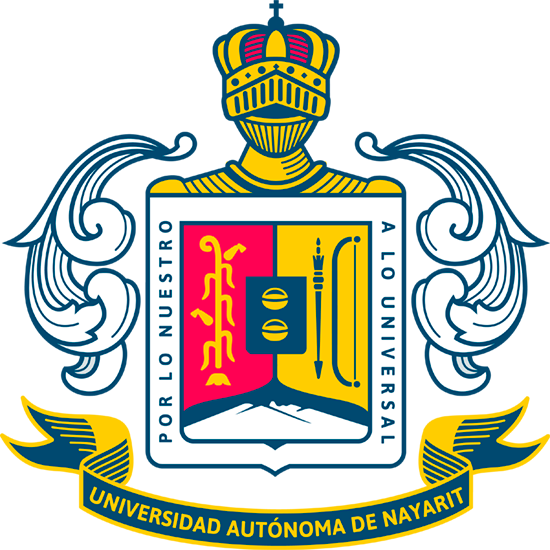Abstract
Objective. To identify the consumers' consumption habits and perception of drinking water quality in Culiacán, Sinaloa, Mexico. Materials and methods. A questionnaire was applied under a stratified scheme by socioeconomic levels during two periods that covered the year's four seasons. The results were analyzed through descriptive statistical analysis and simple correspondence analysis to determine the association between variables of interest. Results. The primary source of water supply for drinking and preparing food in households is jugs obtained from local purification plants. 30% of the population uses water from the public network to prepare food; even though the color and smell of water from the public network are perceived as good, the population does not drink water directly from the public network. Conclusion. Consumption habits differ from the perception of water quality from the public network in Culiacán. The results will provide primary information that, together with a subsequent quantitative microbiological risk assessment of tap water in Culiacán, will allow the development of strategies to minimize water supply health-related risks.
References
Chaidez, C., Soto, M., Martinez, C., & Keswick, B. (2008). Drinking water microbiological survey of the Northwestern State of Sinaloa, Mexico. J Water Health, 6(1), 125-129. https://doi.org/10.2166/wh.2007.011
Comisión Nacional del Agua [CONAGUA]. (2014). Programa de medidas preventivas y de mitigación de la sequía 2014 para la ciudad de: Culiacán Rosales, Sinaloa. https://www.gob.mx/cms/uploads/attachment/file/99849/PMPMS_Culiac_n_Sin.pdf
Diario Oficial de la Federación [DOF]. (2022). Norma Oficial Mexicana NOM-127-SSA1-2021, Agua para uso y consumo humano. Límites permisibles de la calidad del agua. Secretaria de Salud. https://www.dof.gob.mx/nota_detalle.php?codigo=5650705&fecha=02/05/2022#gsc.tab=0
Espinosa-Garcia, A. C., Diaz-Avalos, C., Gonzalez-Villarreal, F. J., Val-Segura, R., Malvaez-Orozco, V., & Mazari-Hiriart, M. (2015). Drinking water quality in a Mexico city university community: perception and preferences. Ecohealth, 12(1), 88-97. https://doi.org/10.1007/s10393-014-0978-z
Faviel-Cortez, M., Infante-Mata, D., & Molina-Rosales, D. O. (2019). Percepción y calidad de agua en comunidades rurales del área natural protegida la encrucijada, Chiapas, MÉxico. Revista Internacional de Contaminación Ambiental, 35(2), 317-334. https://doi.org/10.20937/RICA.2019.35.02.05
González-Villarreal, F., Aguirre Díaz, R., & Lartigue, C. (2016). Percepciones, actitudes y conductas respecto al servicio de agua potable en la Ciudad de México. Tecnología Y Ciencias Del Agua, 7(6), 41–56. https://www.revistatyca.org.mx/index.php/tyca/article/view/1281
Ighalo, J. O., Adeniyi, A. G., Adeniran, J. A., & Ogunniyi, S. (2021). A systematic literature analysis of the nature and regional distribution of water pollution sources in Nigeria. Journal of Cleaner Production, 283. https://doi.org/10.1016/j.jclepro.2020.124566
Instituto Nacional de Estadística y Geografía [INEGI]. (2018). Módulo de hogares y medio ambiente (MOHOMA) 2017. https://www.inegi.org.mx/contenidos/saladeprensa/boletines/2018/GrfiaMdoAmte/MOHOMA2018_06.pdf
Instituto Nacional de Estadística y Geografía [INEGI]. (2020). Sistema para la consulta de información censal 2020 (SCINCE 2020). Instituto Nacional de Estadística y Geografía. https://gaia.inegi.org.mx/scince2020/
Instituto Nacional de Estadística y Geografía [INEGI]. (2021). Panorama sociodemográfico de Sinaloa, censo de población y vivienda 2020. https://www.inegi.org.mx/contenidos/productos/prod_serv/contenidos/espanol/bvinegi/productos/nueva_estruc/702825197988.pdf
Instituto Nacional de Estadística y Geografía [INEGI]. (2024). Directorio Estadístico Nacional de Unidades Económicas INEGI. https://www.inegi.org.mx/app/mapa/denue/default.aspx
Junta municipal de agua potable y alcantarillado de Culiacán [JAPAC]. (2025). Plantas potabilizadoras. Culiacán, Sinaloa, México: Junta municipal de agua potable y alcantarillado de Culiacán. https://japac.gob.mx/infraestructura/plantas-potabilizadoras/
Kalu, C. M., Mudau, K. L., Masindi, V., Ijoma, G. N., & Tekere, M. (2024). Occurrences and implications of pathogenic and antibiotic-resistant bacteria in different stages of drinking water treatment plants and distribution systems. Heliyon, 10(4), e26380. https://doi.org/10.1016/j.heliyon.2024.e26380
Marquez-Fernandez, O., & Ortega-Marquez, M. (2017). Percepción social del servicio de agua potable en el municipio de Xalapa, Veracruz. Revista Mexicana de Opinión Pública, 23, pp. 41-59. https://www.scielo.org.mx/scielo.php?pid=S2448-49112017000200041&script=sci_abstract
Montero-Contreras, D. (2019). Instituciones y actores: un enfoque alternativo para entender el consumo de agua embotellada en México (U. I. Universidad Autónoma Metropolitana Ed.).
Montgomery, M. R. (2008). The urban transformation of the developing world. Science, 319(5864), 761-764. https://doi.org/10.1126/science.1153012
Reyes, O., Espinosa, R., & Olvera, R. (2013). Criterios para determinar el Tamaño de Muestra en Estudios Descriptivos. Paper presented at the Congreso de Investigación de Investigación, Celaya, Guanajuato, México.
Rubino, F., Corona, Y., Perez, J. G. J., & Smith, C. (2018). Bacterial contamination of drinking water in Guadalajara, Mexico. Int J Environ Res Public Health, 16(1). https://doi.org/10.3390/ijerph16010067
Vargas Melgarejo, L. M. (2014). Sobre el concepto de percepción. Alteridades, 0(8), 47-53. https://alteridades.izt.uam.mx/index.php/Alte/article/view/588
Venegas, B., Tello-Hernández, M. A., Cepeda-Cornejo, V., & Molina-Romero, D. (2022). Calidad microbiológica: detección de Aeromonas sp y Pseudomonas sp en garrafones provenientes de pequeñas plantas purificadoras de agua. CienciaUAT. https://doi.org/10.29059/cienciauat.v17i2.1728
Victory, K. R., Wilson, A. M., Cabrera, N. L., Larson, D., Reynolds, K. A., Latura, J., & Beamer, P. I. (2022). Risk perceptions of drinking bottled vs. tap water in a low-income community on the US-Mexico Border. BMC Public Health, 22(1), 1712. https://doi.org/10.1186/s12889-022-14109-5
Organización Mundial de la Salud [WHO]. (2018). Guías para la calidad del agua de consumo humano. https://apps.who.int/iris/handle/10665/272403

Revista Bio Ciencias by Universidad Autónoma de Nayarit under Creative Commons Attribution-NonCommercial 3.0 Unported License.
Based on work of http://biociencias.uan.edu.mx/.
Further permits not covered by this licence can be found at http://editorial.uan.edu.mx/index.php/BIOCIENCIAS.






